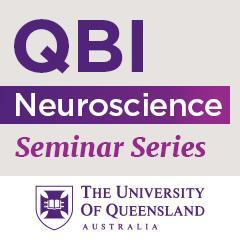The role of neogenin in epithelial morphogenesis
Speaker
Natalie Lee, Queensland Brain Institute, University of Queensland
Description
Radial glial progenitors are neuroepithelial cells and give rise to all neurons in the embryonic brain. As for all epithelia, adherens junction (AJ) formation and maintenance in radial progenitors are dependent on cadherin-mediated cell-cell adhesion. Failure in AJ assembly leads to loss of apico-basal polarity, which destroys progenitor morphology and results in the failure to generate neurons. Previous studies in the Cooper lab revealed that depletion of the guidance receptor neogenin in the embryonic mouse cortex resulted in severe disruption of progenitor morphology due to a failure in AJ assembly. Moreover, loss of cell adhesion leads to the formation of neuronal heterotopias protruding into the ventricle and below the cortical plate.
We have now investigated the role of neogenin in AJ formation using the well-established in vitro epithelial CaCO2 cell model. We show that loss of neogenin disrupts cadherin homophilic adhesion between adjacent cells, leading to a severe disruption in junctional contacts. Furthermore, loss of neogenin also results in the inability to recruit key actin nucleating factors such as the wave regulatory complex and the actin polymerisation complex Arp2/3 to the cell-cell interface. This inability leads to dramatic changes in junctional tension due to a significant decrease in the actin turnover rate at AJs.
Together, these findings suggest neogenin may control neurogenesis in the developing cortex by regulating AJ assembly, actin nucleation, and actomyosin-mediated tension between radial glia progenitors.
About Neuroscience Seminars
Neuroscience seminars at the QBI play a major role in the advancement of neuroscience in the Asia-Pacific region. The primary goal of these seminars is to promote excellence in neuroscience through the exchange of ideas, establishing new collaborations and augmenting partnerships already in place.
Seminars in the QBI Auditorium on Level 7 are held on Wednesdays at 12-1pm, which are sometimes simulcast on Zoom (with approval from the speaker). We also occassionally hold seminars from international speakers via Zoom. The days and times of these seminars will vary depending on the time zone of the speaker. Please see each seminar listed below for details.



